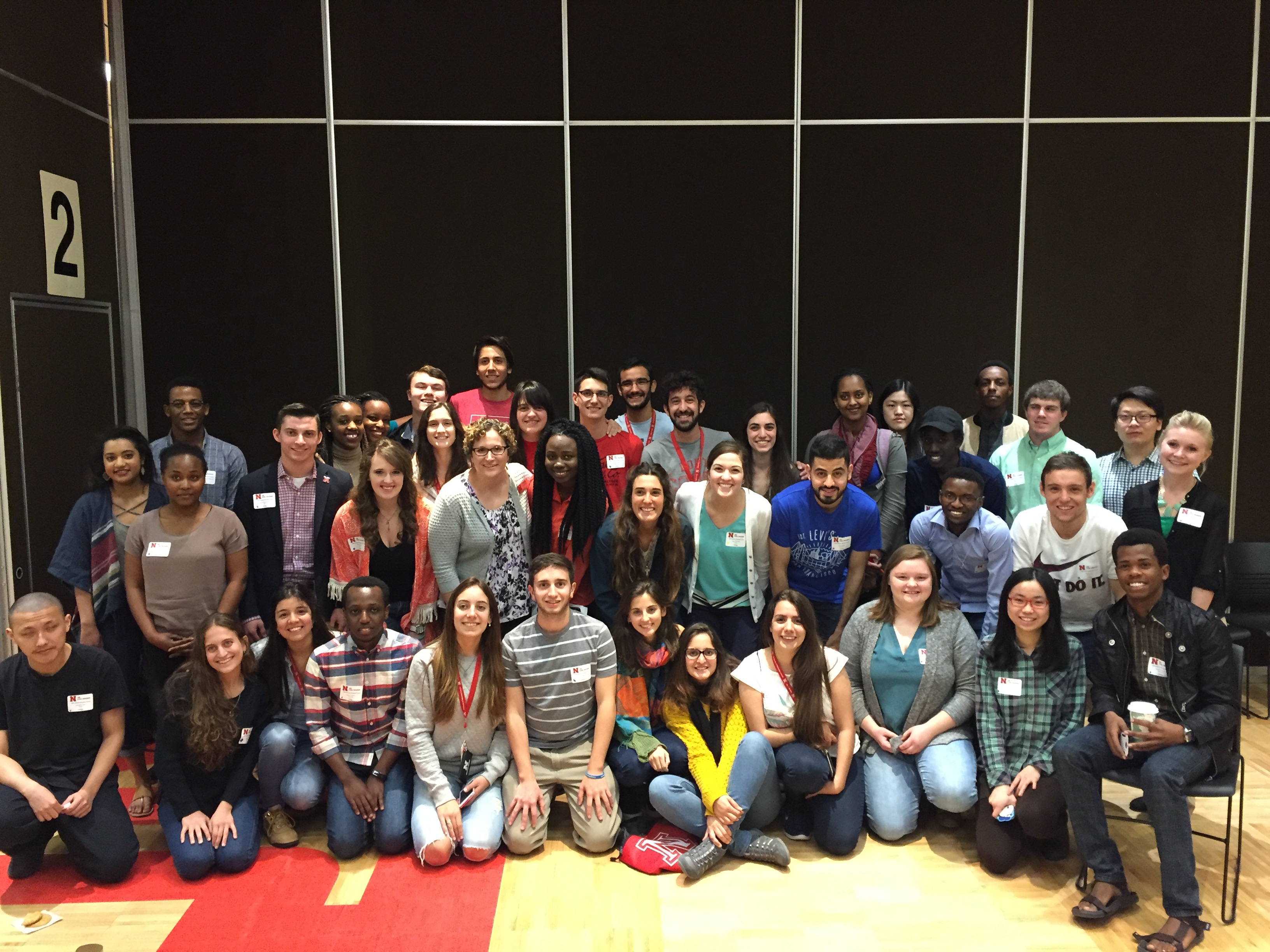The Institute of Agriculture and Natural Resources’ (IANR) Global Engagement office, in partnership with the Agricultural Education, Leadership and Communication (ALEC) Department recently gathered students from four countries across multiple continents for a dialogue on pressing global issues. The event was held as part of the Agriculture and Innovation Seminar programming for the Argentina Friends of Fulbright student group in their last week of their stay at the University of Nebraska-Lincoln (UNL).
“It was phenomenal to see the students from Argentina, Rwanda, China, and America identify agricultural and environmental issues of importance not only to their own countries, but also to the world,” said Jamie Loizzo, assistant professor of Agricultural Leadership, Education and Communication at UNL. Loizzo moderated the discussion following her presentation on culture-centered approach and solutions-based communication. The group of approximately 50 students split into small, diverse groups of five or fewer and engaged in discussion of several topics, including identifying the most critical challenges his or her country faces, how those compare to the challenges of other countries, and how global programs can support students’ progress towards needed world solutions. Interviewed immediately after the event, students’ responses were positive and enthusiastic.
“We can use one place’s experience to solve another place’s problems, and we can cooperate and solve the challenges we all face,” said junior horticulture major, Jingwei Yu, whose home institution is Northwest Agriculture and Forestry University, in Yangling, Shaanxi Province, China.
“I feel that when you open your mind and see the problems (like food security, limited resources) in different ways, and also realize that many different parts of the world have the same problems… (that) there must be a way to find a solution,” said Friends of Fulbright student, Ana Lucía Karlen, who attends Universidad Nacional del Nordeste in Corrientes Province, Argentina. Learning about the issues faced by a country different than his or her own, while not always par for the course in the average agricultural sciences curriculum, for example, will continue to be key to students’ future success in an increasingly global economy.
“The world is interconnected in a way that it never has been before, so our students have to be prepared to be engaged in this new reality,” says IANR Assistant Vice Chancellor for Global Engagement, Josh Davis. “I tell students that their future employers are going to expect that they can operate internationally and in these different cultural situations.”
“By getting to know what’s happening in America and what is happening in China or Korea, from that global perspective, I can get to know what I need to do to solve global problems (like food security),” said freshman integrated science major, Gloria Mwiseneza, from Kigali, Rwanda.
The UNL experience can be an opportunity for students, domestic or international, to encounter diverse global perspectives. More than 2,700 international students and scholars study at Nebraska from over 136 countries.
“I feel that coming to Nebraska, I (also) came to different parts of the world…traveling here, I also traveled to China, to different countries in Africa (by the students I met),” Karlen said. It’s a benefit not only for international students, but also domestic ones, some of whom may not have had many chances to meet people from outside the U.S.
“I’m from a small rural community, where I was surrounded by people who shared similar views and opinions as I have, but coming to university, I’ve realized that the world is much larger than just myself or the small town in Nebraska that I’m used to,” said sophomore integrated science major, Gage Hoegermeyer, who hails from Herman, Nebraska.
Future events are being planned to capitalize on the momentum generated by the discussion, and students themselves plan to take part in or even spearhead similar discussions both here and in their home communities.
“I think I would create similar events back in Rwanda in order to encourage cultural exchange and train diverse driven leaders to increase global partnerships,” said Olivier Tuyizere, freshman integrated science major, from Kigali, Rwanda.
The Argentine students’ program in Nebraska, entitled, “Toward a Deeper Understanding: Education, Culture, and Innovation in the U.S.” is sponsored by the Argentina Fulbright Commission.
By Brianne Wolf | Program and Outreach Associate, Institute of Agriculture and Natural Resources-Global Engagement
